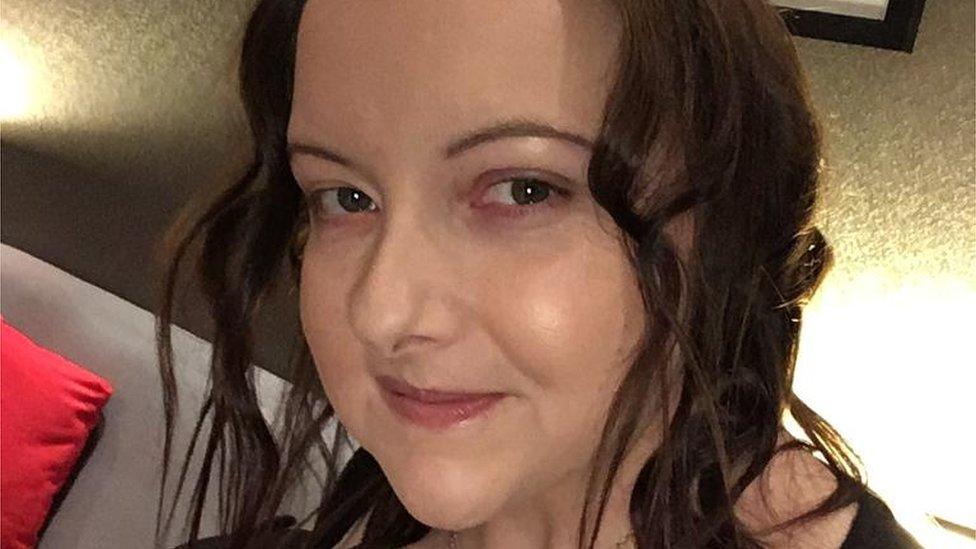Naming animals could help brain tumour diagnosis
- Published

Heather Dearie said she hopes the test could help patients be diagnosed faster than she was
A simple language test which asks people to name as many animals as they can in 60 seconds could help GPs identify people who have brain tumours.
A study of 270 people with common symptoms such as headaches found that those with a brain tumour had much lower scores in the task.
It is hoped the test could help identify patients in need of an urgent brain scan.
About 1,000 people are diagnosed with brain tumours in Scotland every year.
While more people than ever are surviving cancer in the UK, progress on brain tumours has continued to lag behind improvements in early detection and survival seen in other cancer types.
Just 12% of adults survive for five years following diagnosis with a malignant brain tumour, and overall the disease continues to reduce life expectancy by 27 years on average - the highest of any cancer according to The Brain Tumour Charity, which funded the Scottish study.
The animal naming test is already used in assessing cognitive function for patients with neurological conditions including brain tumours.
But the study by University of Edinburgh researchers is the first time it has been investigated as a way to speed up the diagnosis of brain tumours.
They say further research is needed to validate and optimise use of the test, but hope it could in future help reduce time to diagnosis for people with brain tumours - enabling prompt access to treatment and maximising their quality of life.
How does the test work?
Participants were asked to name as many different animals as they could within 60 seconds, with repetitions discounted. A score of 14 or more animals was used to categorise the scores as either "good" or "poor".
Those who scored 14 or higher were nearly eight times more likely not to have a brain tumour - while a poor performance more than tripled the likelihood of a brain tumour being present.
The study was led by Dr Paul Brennan, an honorary consultant neurosurgeon at the University of Edinburgh and NHS Lothian.
He said: "The first symptoms experienced by patients with a brain tumour are often non-specific, such as headache, where a non-tumour diagnosis is much more likely. For example, for every 1,000 people presenting to a GP with headaches, just one or two will have a brain tumour.
"It remains difficult to determine which patients with these non-specific symptoms are most at risk of having a brain tumour. This unfortunately contributes to significant delays in diagnosis.
"Our study showed that a simple language test, which can be quickly and easily administered, could help GPs decide who is most likely to have a brain tumour. Symptomatic patients with low scores could be prioritised for rapid imaging, whilst other patients with high scores could be monitored as they are more likely to improve."

Dr Paul Brennan, who led the study, said its findings were encouraging
Reducing time to diagnosis for people with a brain tumour remains critical as it means more rapid access to treatment, which is crucial to maximising patients' quality of life.
Heather Dearie, 35, from Ayrshire, was left with facial paralysis and has no tear function in her right eye after it took 18 months to diagnose her brain tumour.
By the time her tumour was diagnosed, she required emergency surgery to relieve pressure on her brain from a build-up of fluid.
Ms Dearie said she had been misdiagnosed for 18 months and needed four corrective surgeries which would not have been required if it had been found earlier.
She said she hoped the "Noah's Ark" test could be a significant advance that could speed up diagnosis for others
Ms Dearie added: "We urgently need to find new tools to support GPs and I really hope this test will help speed up the diagnosis process and help enable more people to get the treatment they need as quickly as possible.
"Having my brain tumour diagnosed earlier could have changed my life completely and meant I would have had little to none of the lifelong side effects I have now."